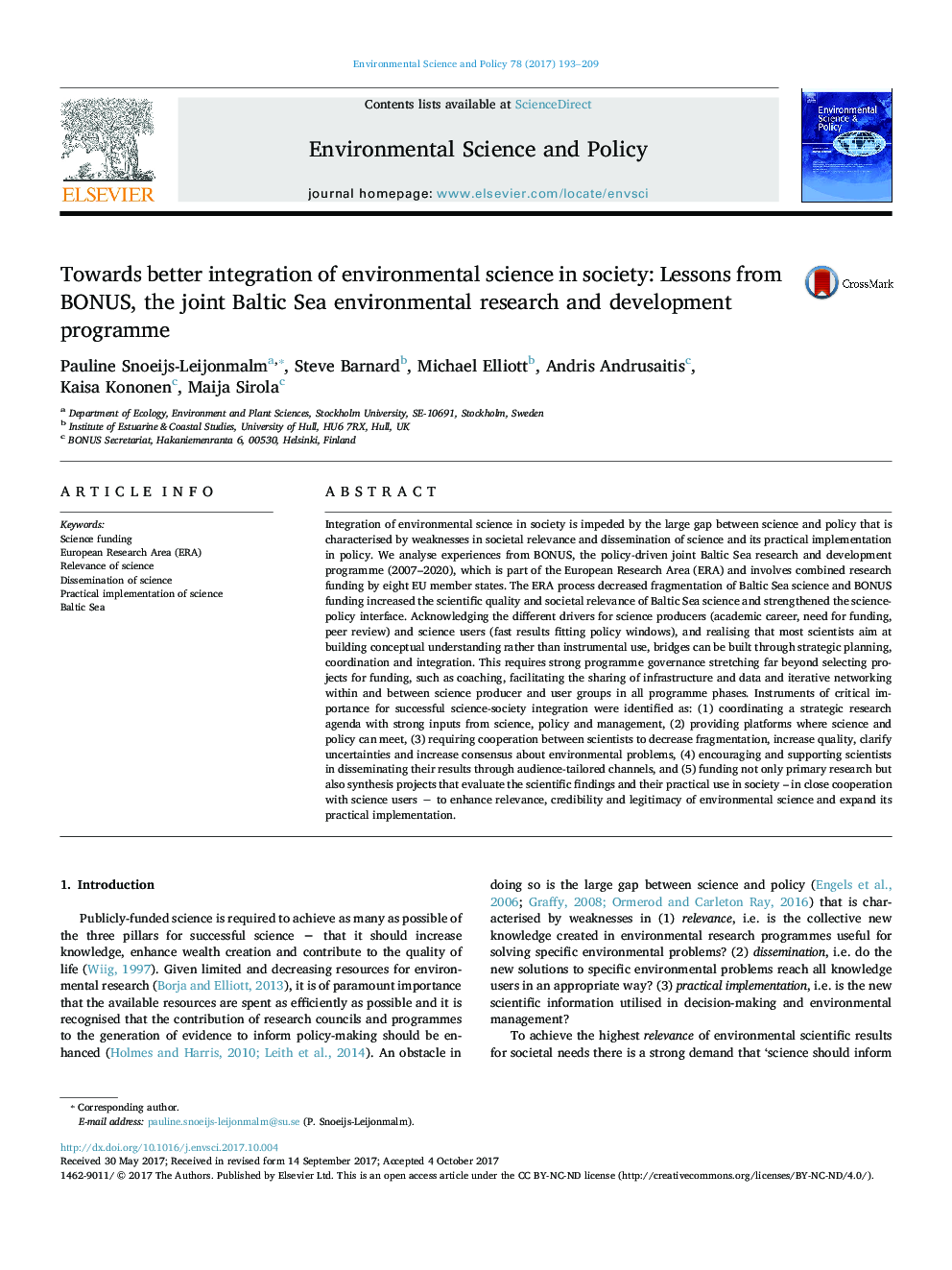| کد مقاله | کد نشریه | سال انتشار | مقاله انگلیسی | نسخه تمام متن |
|---|---|---|---|---|
| 5115692 | 1485030 | 2017 | 17 صفحه PDF | دانلود رایگان |

- The ERA process decreased fragmentation of Baltic Sea science through BONUS.
- BONUS funding increased scientific quality and societal relevance of Baltic Sea science.
- Strong research programme governance is crucial for science-society integration.
- Funding synthesis projects enhances relevance, credibility and legitimacy of science.
- Synthesis should include evaluation of the practical implementation of science in society.
Integration of environmental science in society is impeded by the large gap between science and policy that is characterised by weaknesses in societal relevance and dissemination of science and its practical implementation in policy. We analyse experiences from BONUS, the policy-driven joint Baltic Sea research and development programme (2007-2020), which is part of the European Research Area (ERA) and involves combined research funding by eight EU member states. The ERA process decreased fragmentation of Baltic Sea science and BONUS funding increased the scientific quality and societal relevance of Baltic Sea science and strengthened the science-policy interface. Acknowledging the different drivers for science producers (academic career, need for funding, peer review) and science users (fast results fitting policy windows), and realising that most scientists aim at building conceptual understanding rather than instrumental use, bridges can be built through strategic planning, coordination and integration. This requires strong programme governance stretching far beyond selecting projects for funding, such as coaching, facilitating the sharing of infrastructure and data and iterative networking within and between science producer and user groups in all programme phases. Instruments of critical importance for successful science-society integration were identified as: (1) coordinating a strategic research agenda with strong inputs from science, policy and management, (2) providing platforms where science and policy can meet, (3) requiring cooperation between scientists to decrease fragmentation, increase quality, clarify uncertainties and increase consensus about environmental problems, (4) encouraging and supporting scientists in disseminating their results through audience-tailored channels, and (5) funding not only primary research but also synthesis projects that evaluate the scientific findings and their practical use in society - in close cooperation with science users â to enhance relevance, credibility and legitimacy of environmental science and expand its practical implementation.
Journal: Environmental Science & Policy - Volume 78, December 2017, Pages 193-209